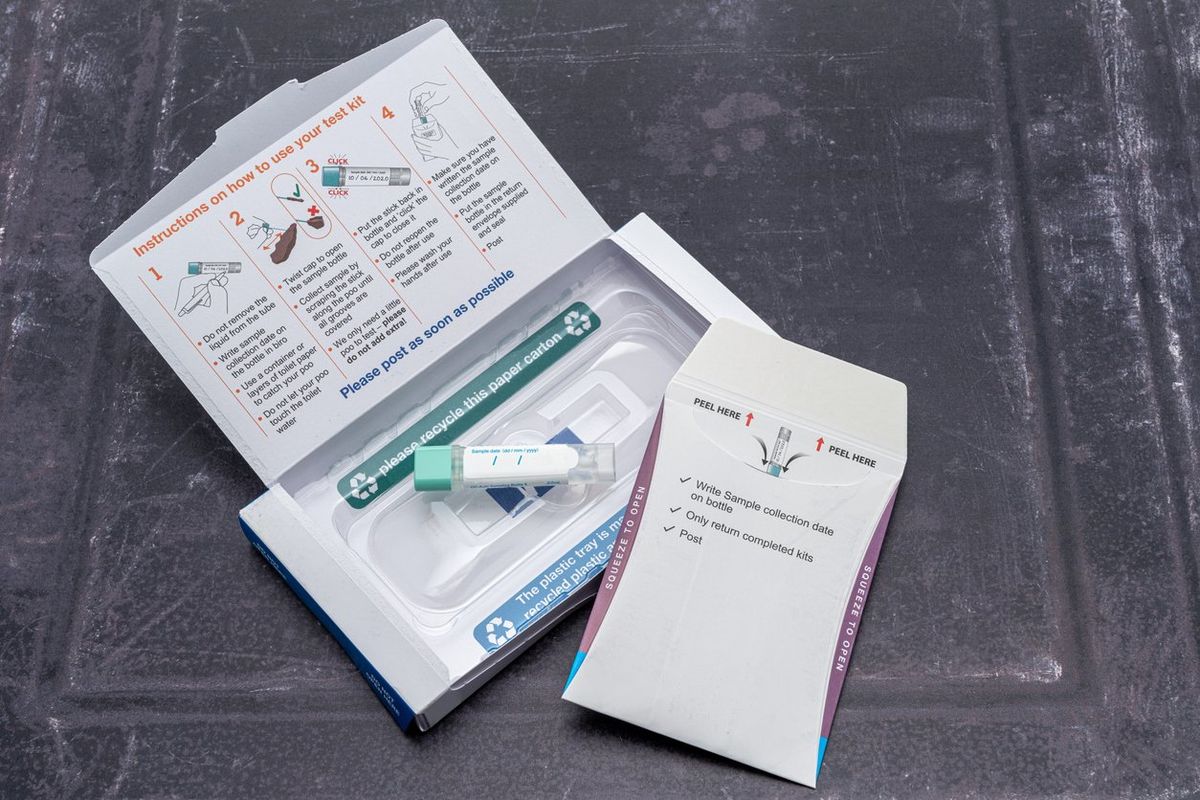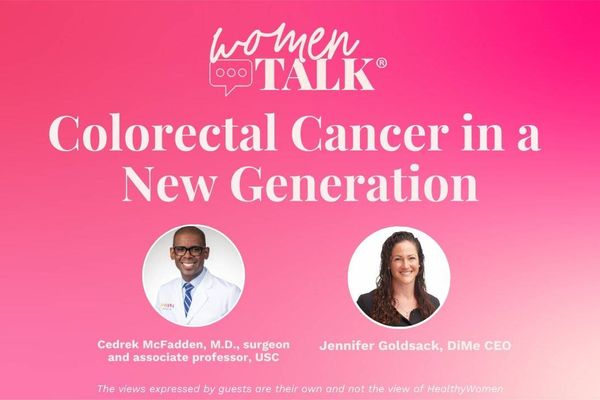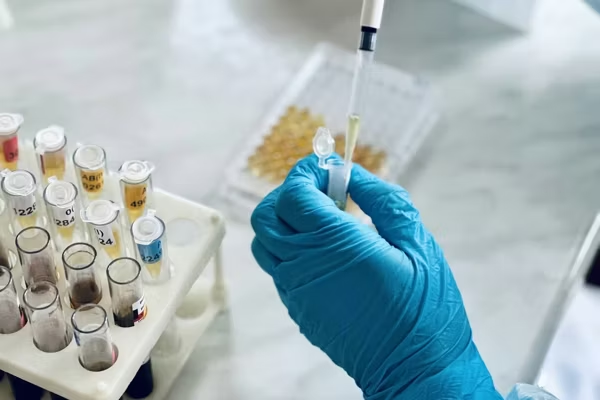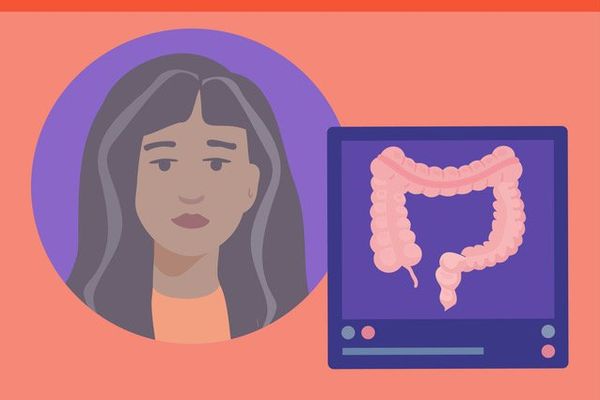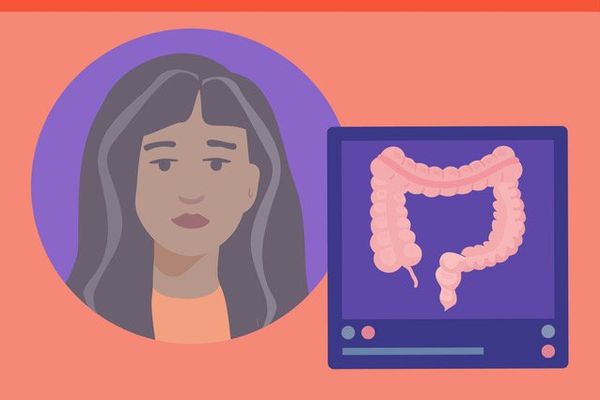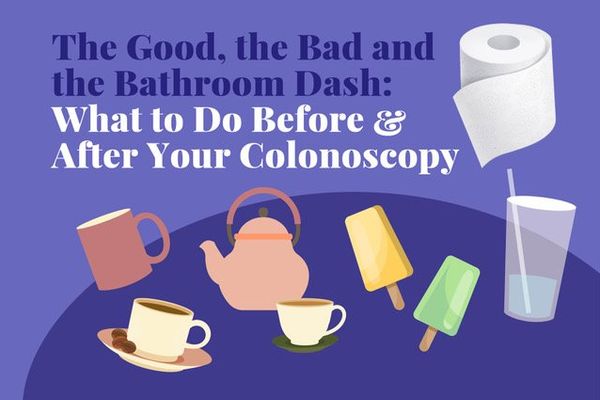Getting screened is the best way to lower your risk of colon cancer, a disease that affects 1 in 25 women and is the second-leading cause of cancer death in women under 50.
The good news — particularly for those who really dread the idea of a colonoscopy — is that there are many methods of screening for colon cancer, and some of them can be done from the comfort of your own home. But with all the testing options available, how do you know which one to choose?
Understanding the different types of colon cancer screening may help you figure out which one is best for you.
Why is colon cancer screening so important?
Colon cancer generally takes about 10 years to develop. For most people, it starts when a gene mutation affects one of the cells that line your colon. This mutated cell divides and grows, forming a clump of cells called a polyp.
While many polyps are benign (non-cancerous), some may eventually turn into cancer. Screening helps to find polyps before they have a chance to become cancerous.
It can also spot cancer that has already started in the early stages, when it’s easier to treat. The 5-year survival rate of people with early stage colorectal cancer is around 90% but drops to around 13% if the cancer has spread to other parts of the body.
The current recommendation is that people with an average risk of colon cancer start screening at age 45.
Are some groups at higher risk?
According to the American Cancer Society, Black people in the United States are 20% more likely to get colorectal cancer — and 40% more likely to die from it — than other racial groups. Genetic differences, lifestyle factors and environmental factors account for some of the disparity, but other reasons include lack of access to healthcare and the lack of ability to pay for healthcare.
Experts are working to help close this gap, organizing community-based efforts, such as the Colorectal Cancer Screening Intervention Program (CCSIP) to raise awareness and make screening more accessible.
What is a colonoscopy, anyway?
A colonoscopy is an outpatient procedure where a doctor uses a tiny video camera attached to a long, flexible tube to check the colon for cancer, as well as polyps and other red flags, such as irritated tissue.
The tube is inserted into the rectum while the patient is sedated, and there is no pain during or after the procedure.
A major benefit of the colonoscopy is that doctors don’t just look for potentially problematic polyps — they can also remove them. And if your results are normal, you won’t need another colonoscopy for 10 years. This is why colonoscopy is considered the “gold standard” for colon cancer detection.
A colonoscopy comes with the same small risks (such as bleeding and infection) as any medical procedure, but the benefits outweigh the potential harm for most patients.
What are the other screening options for colon cancer?
There are a few different screening options that involve using an at-home test kit that look for signs of cancer.
- The guaiac-based fecal occult blood test (gFOBT) uses a chemical called guaiac to find blood in the stool. You get a test kit from your doctor and use it at home to collect a sample that’s tested in a lab. This test is done once a year.
- The fecal immunochemical test (FIT) uses antibodies instead of guaiac to detect blood in the stool, but otherwise it’s the same as the gFOBT.
- The FIT-DNA test, such as Cologuard, (also known as the stool DNA test) is the FIT plus another test that checks for changed DNA in the stool. For this test, an entire bowel movement is collected at home and sent to a lab. It’s done at least every three years.
Blood-based tests for colon cancer, such as Shield, are newer options that can be used by people of average risk.
Another option is a flexible sigmoidoscopy, which is essentially a limited colonoscopy that only checks the rectum and lower third of the colon for polyps or cancer. It’s done every five years.
A procedure called a computed tomography (CT) colonoscopy (or virtual colonoscopy) uses a CT scan to take pictures of the colon, making it less invasive than the traditional colonoscopy. It’s done every five years.
It’s important to note that if any of these screenings come back positive or abnormal, you’ll need a traditional colonoscopy.
But for people who’d just as soon avoid a colonoscopy — or are having a hard time getting an appointment because of a backlog — these screenings are much better than nothing.
Which colon cancer screening option is best?
Much like exercise, the “best” colon cancer screening is the one you’ll actually do. You’ll need to take your personal health and insurance situation into consideration, so it’s a good idea to talk through your options with a healthcare provider.
If cost is a concern, the Colorectal Cancer Alliance and Colonoscopy Assist can help you find free or low-cost screenings near you.
This educational resource was created with support from Daiichi Sankyo.
- Health in Your 50s: Preventive Health Screenings You Need ›
- Colon Cancer ›
- Preventive Health Screenings for Women ›
- The Importance of Early Detection for Colorectal Cancer ›
- Colon Cancer Screening Options That Aren't a Colonoscopy ›
- Facts About Colon Cancer - HealthyWomen ›
- Kate Walsh Wants You to Get Screened for Cancer - HealthyWomen ›
- Verdadero o falso: Cáncer de colon - HealthyWomen ›

